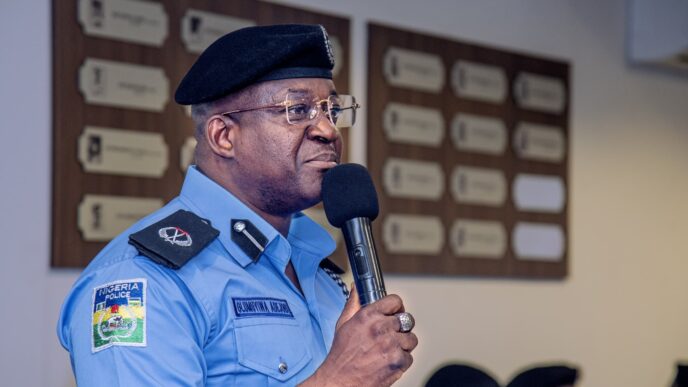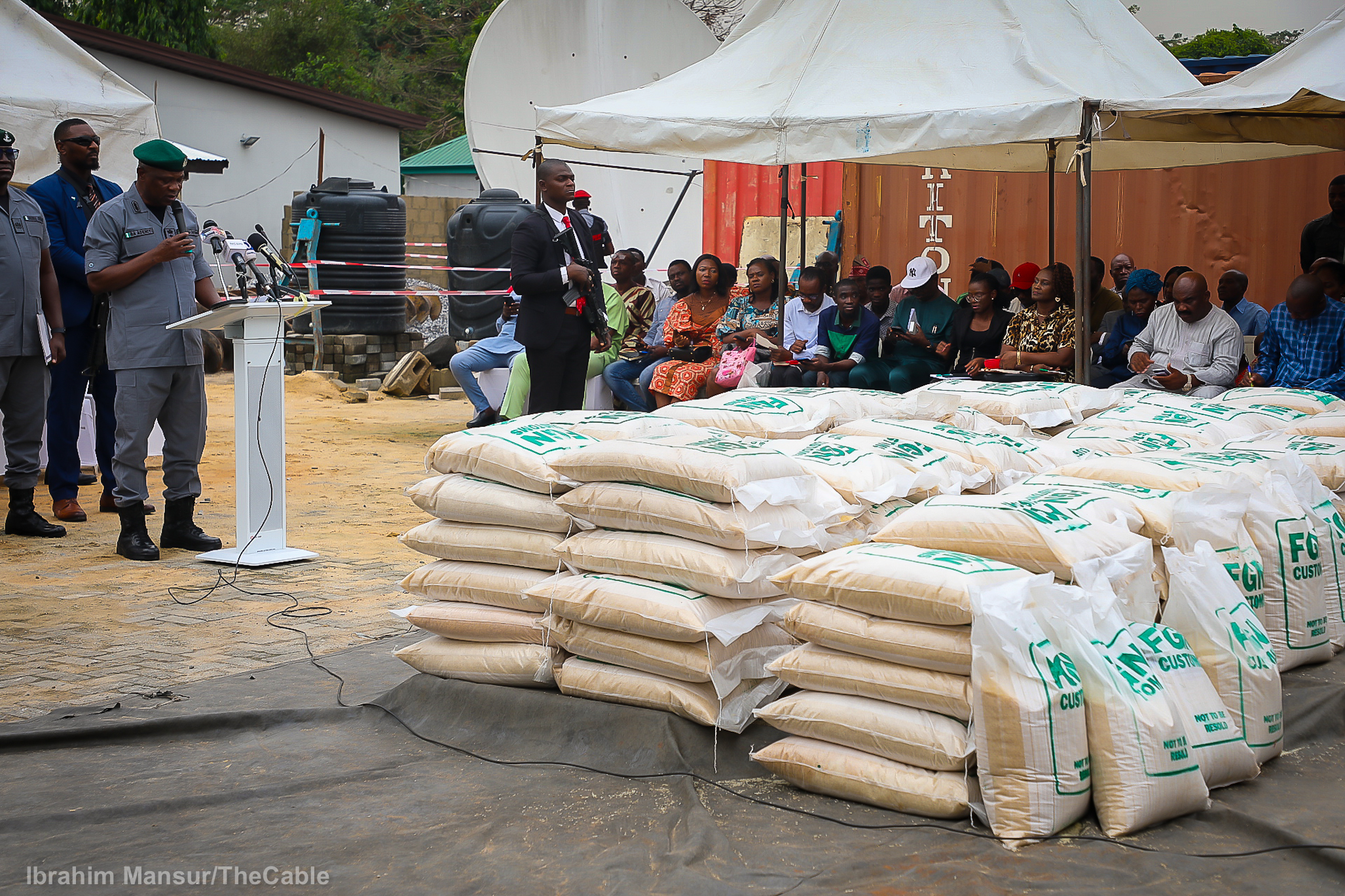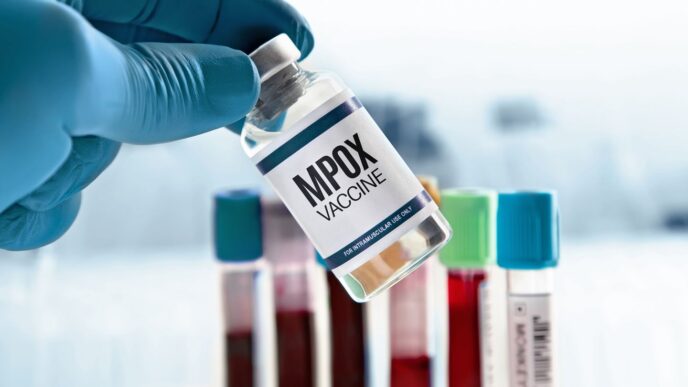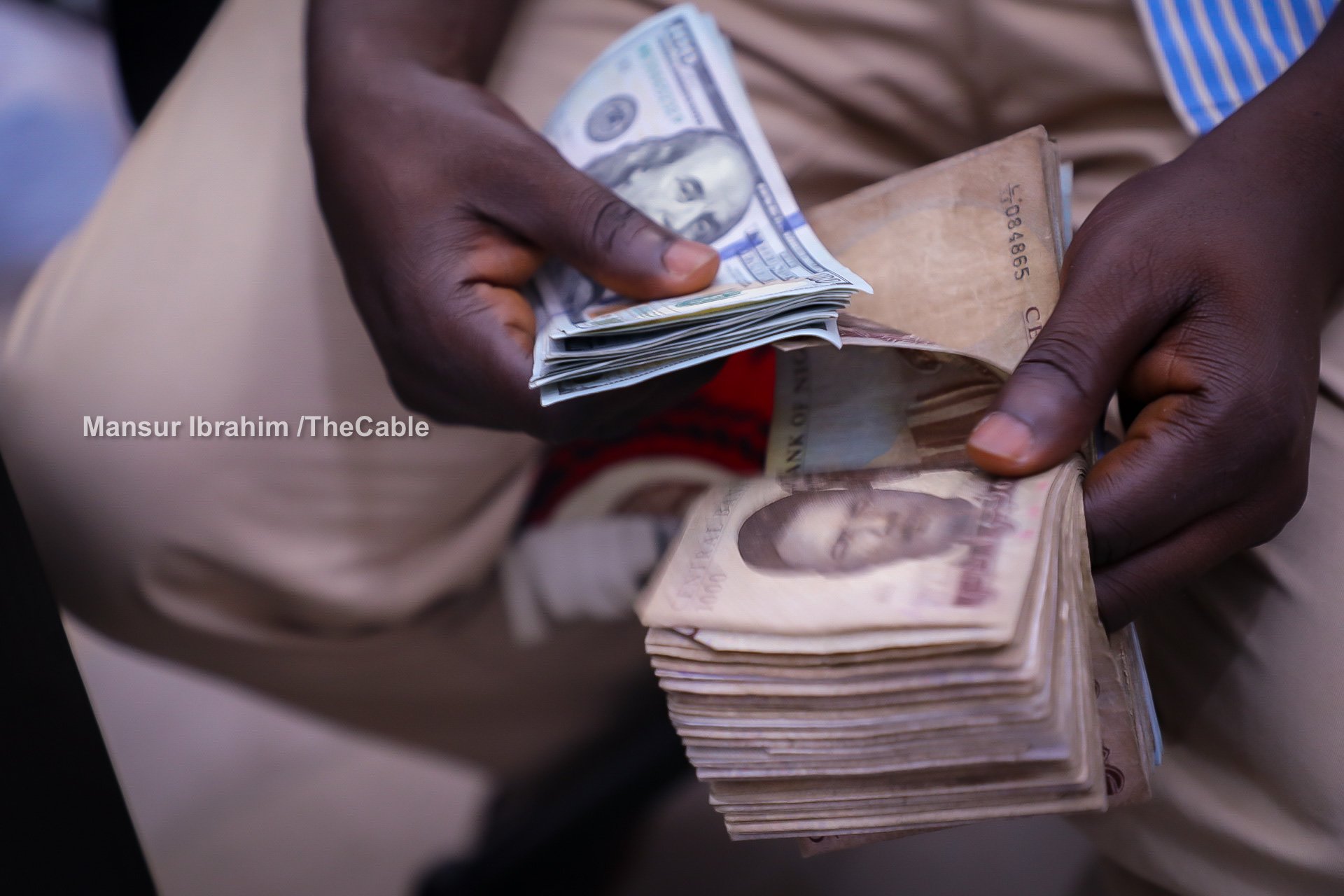Nura Muhammad leg-chained inside Sokoto Remand House... Credit: Abdulwasiu Olokooba
BY ABDULWASIU OLOKOOBA
Thirteen-year-old Nura Muhammad’s past is scarred by trauma. A fugitive from violence, he fled his village in Sabon Birni LGA of Sokoto state after the community was invaded by a group of terrorists, leaving him without parents or a home. Muhammad had no choice but to move to the Sokoto metropolis to start a new life.
“I don’t even know where they are,” Muhammad said when asked about his parents’ whereabouts. He said he didn’t know if they survived when their community was attacked in early 2023.
Muhammad had previously studied the Quran, so he was quickly accepted as a new student at an informal Islamic institution in Sokoto. Before fleeing his village, he had studied up to the sixth Hizb (section) of the Quran.
Advertisement
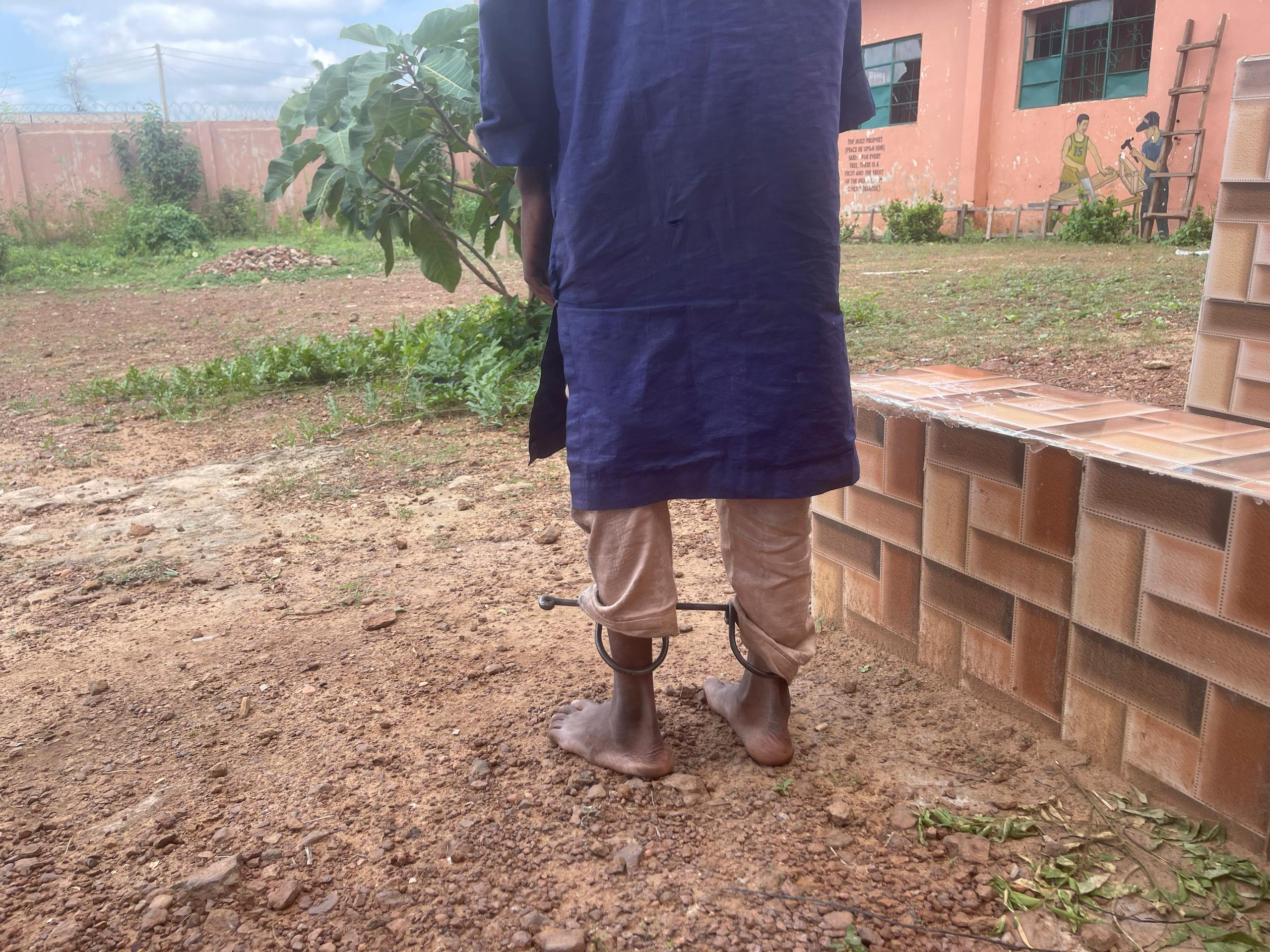
Muhammad lost his freedom in July 2024 when he and three friends – Ahmad Abubakar, Ibrahim Shuaibu, and Ibrahim Umar – were arrested. According to Muhammad, the police raided their home while they were asleep and took them to Kwani Police Station in the state.
“They (the police) brought keke napep (tricycle), and we were not told anything about why we were arrested at that moment. We didn’t know who made the report, and the police didn’t even let us take our clothes or shoes,” Muhammad recounted.
Later, the police accused Ahmad, one of his friends, of stealing milk cans from a shop in Tsohuwar Kasuwa (Sokoto Old Market). Muhammad said the police did not reveal who filed the report or allow the boys to explain their side of the story.
Advertisement
“They just took us straight to court without contacting our parents or guardians. From there, we were sent to the Sokoto Remand House in July,” Muhammad said. He added that the court told them to return in two weeks, but they had already spent over a month in detention with no clear timeline for their next hearing.
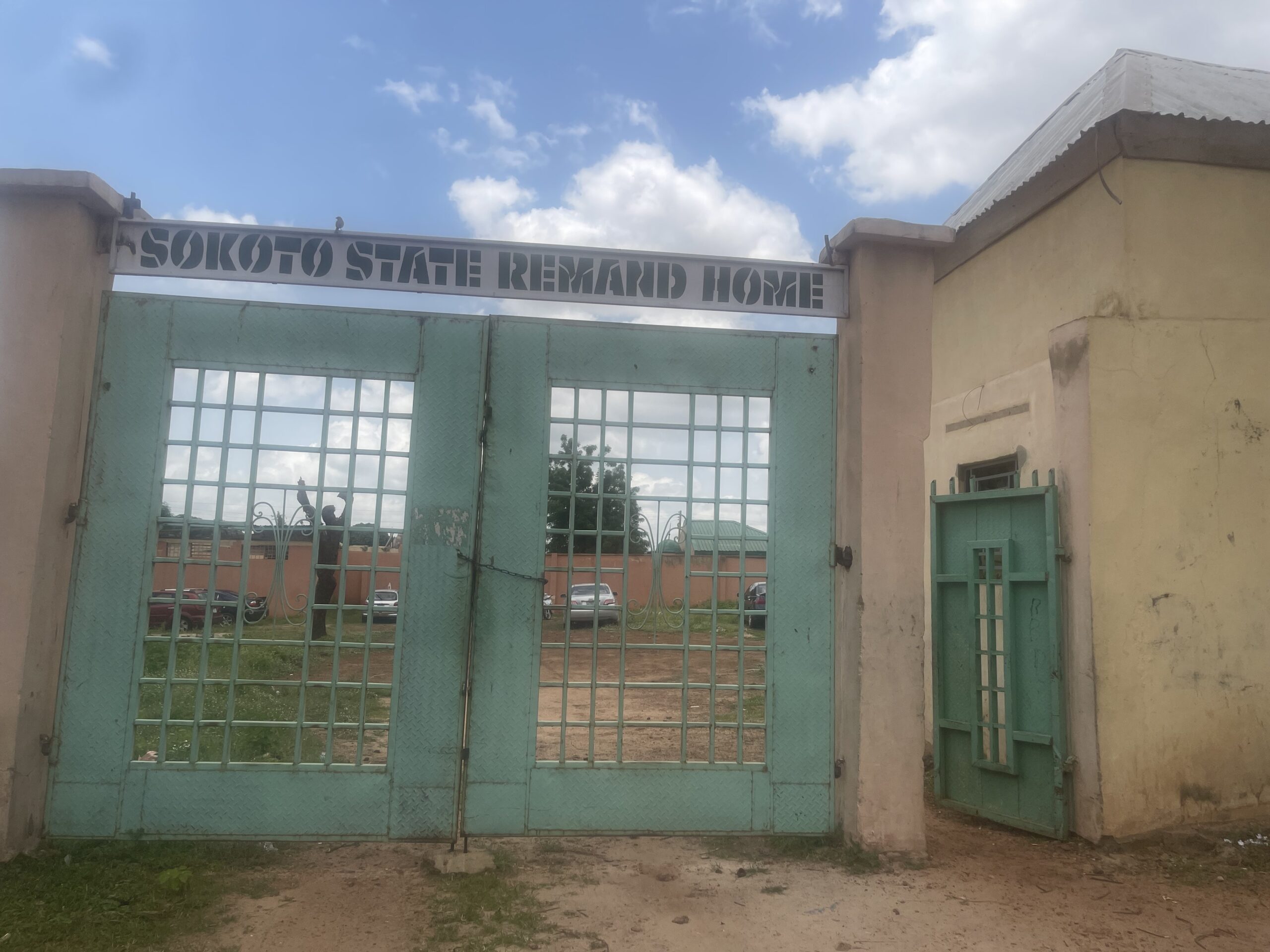
The remand house is under the regulation and supervision of the Sokoto State Ministry of Social and Humanitarian Affairs. A visit to the facility in September 2024 revealed that Muhammad was one of 48 children incarcerated there; more than 85% of them had not been charged or convicted of the alleged crimes that put them in the juvenile prison.
“The majority of them are awaiting trial. They have not been properly charged in court. Some of them only need to appear in court to get bail. But we also have some already convicted, and the court gave them either a jail term or a fine,” said Abubakar Ahmed, the officer-in-charge of the facility.
Abubakar blamed the situation on the negligence of the prosecutors and security operatives in charge of the cases.
Advertisement
“When you have to keep calling those in charge to take them to court, it becomes a serious concern. This is one of the reasons some of the children are yet to be charged,” he explained.
The continual detention of these children without proper charge and conviction is a clear breach of Section 166 of the Sokoto Child Protection Law 2021, which limits pre-trial detention for children to serious offences involving violence or persistent offending and only as a last resort.
BREACH OF CHILD RIGHTS
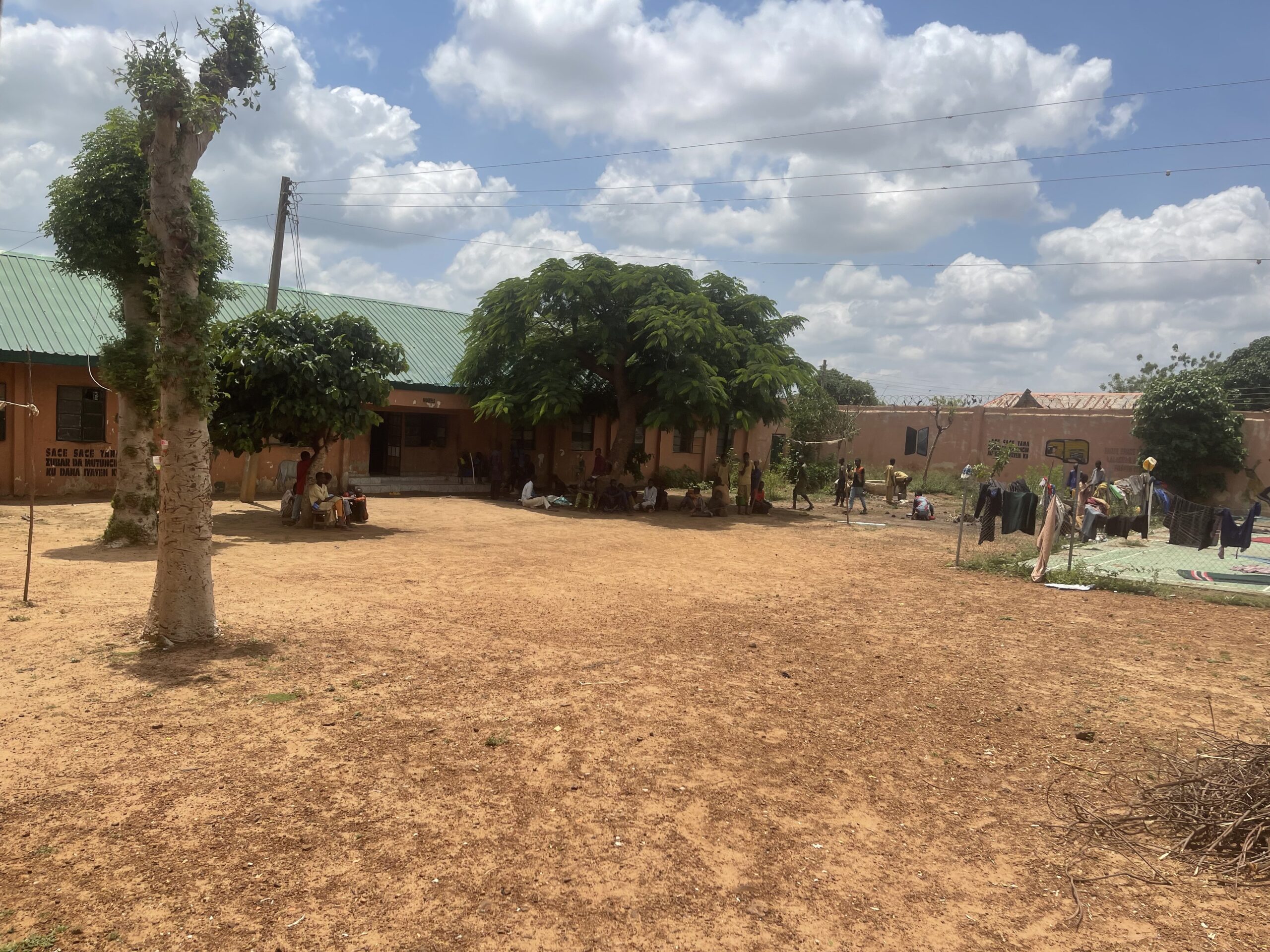
Legal experts and human rights advocates have condemned the prolonged detention of children in Sokoto Remand House. Muhammad Ismail, a Sokoto-based lawyer, described the practice as unconstitutional.
Advertisement
“Section 35 of the Nigerian Constitution guarantees every Nigerian the right to personal liberty. No person should be detained beyond 24 hours without trial, except when no court exists within 40 kilometres, in which case the limit is 48 hours,” Ismail said.
He said pre-trial detention is highly restricted in Nigeria according to the provisions of the constitution.
Advertisement
“The section gives every Nigerian the right to personal liberty and that no person shall be deprived of such liberty. This is the first provision Sokoto Remand House is violating for keeping those children for months and probably years without any convictions and prosecution before a competent court,” the lawyer added.
ARRESTS DURING PROTESTS
Advertisement
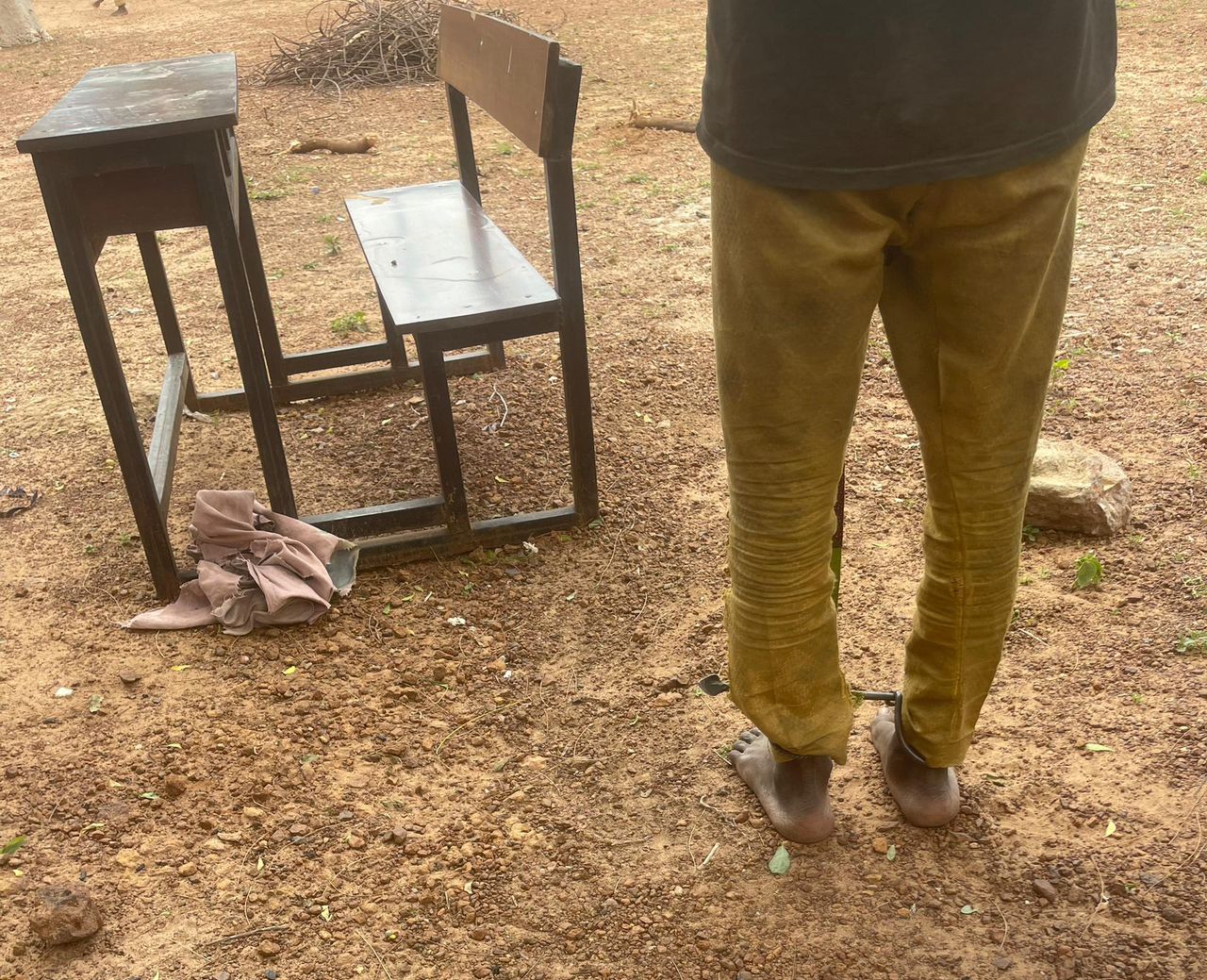
Fourteen-year-old Safiyannu Sani was among the minors arrested during Nigeria’s statewide protests in the first ten days of August 2024. The demonstrations, dubbed #EndBadGovernance, took place across Nigeria to show dissatisfaction with the country’s escalating suffering.
Despite not taking part in the protest, he was arrested by police while trying to get fuel for the grinding machine at his workplace.
Advertisement
“My parents do not know I am currently being detained in prison because I was not taken to court. The police brought us here directly after the arrest. The others were adults and were taken to the prison,” Safiyannu said.
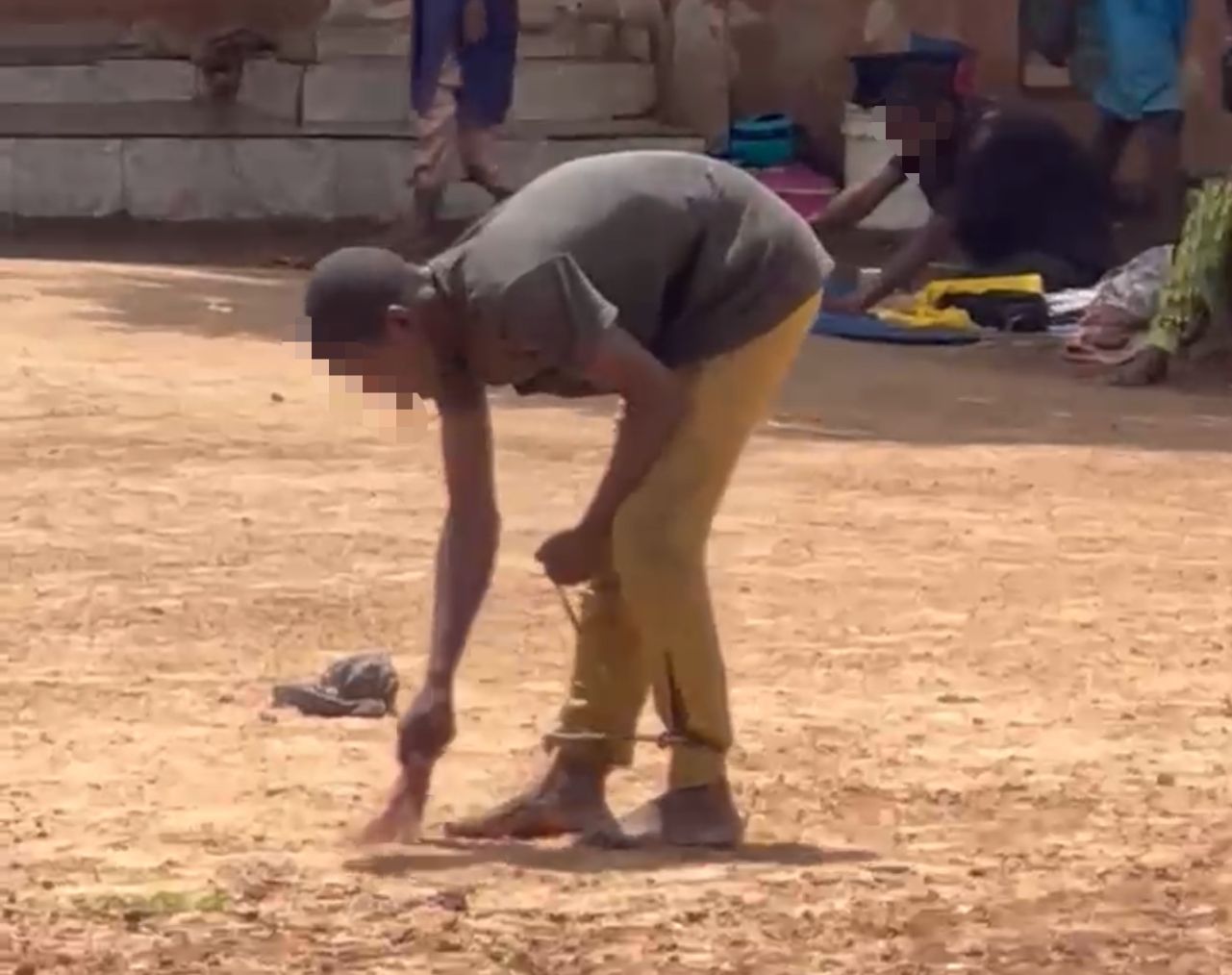
At the time of the visit to the remand house in September, he said one had been released from detention out of the four children arrested during the protest.
Similar to Safiyannu’s case, the Nigerian government imprisoned 28 other children in the Federal Capital Territory of Abuja for taking part in the nationwide demonstrations in August 2024. Unlike Safiyannu, these other minors were charged with terrorism-related offences shortly after their detention and were later ordered to be remanded by the Federal High Court in Abuja.
An international non-governmental organisation focused on human rights, Amnesty International, added that 12 children were also arrested and unlawfully detained in Katsina state during the protest.
The global organisation claimed that security forces might have picked up some of the arrested minors on the streets during the days of the protest for what it called an “unfair trial”.
“Children with their whole lives ahead of them are now at the risk of being tried on trumped-up charges,” the organisation worried.
JUSTICE DELAYED
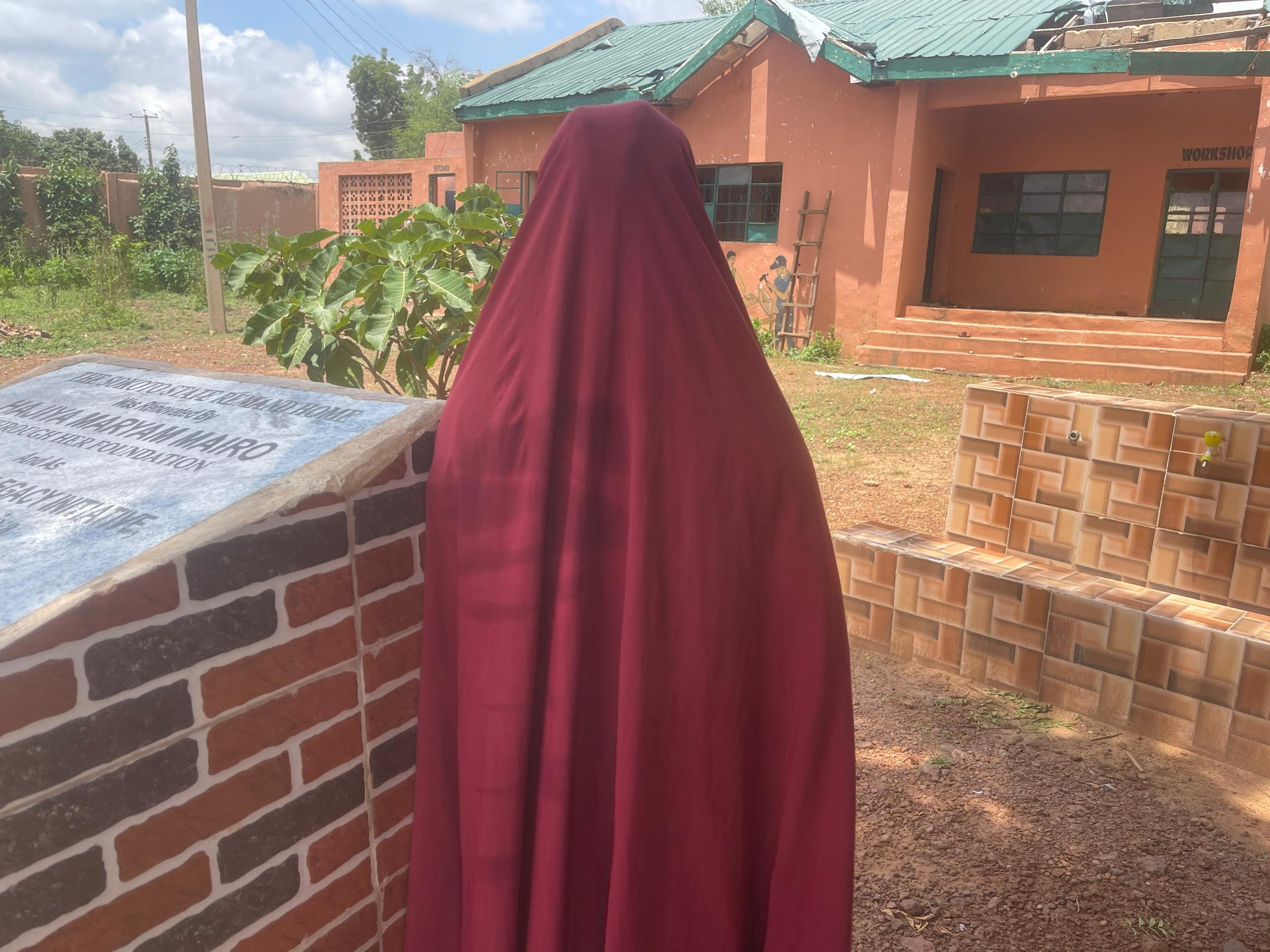
Jemila, aged 16, has been detained for more than three years at the remand house without conviction. She was brought to the juvenile prison in 2021 when she was accused of killing a child belonging to her former brother-in-law. But she maintained her innocence regarding the alleged murder.
Jemila recounted the fateful day: “The child died in my room, but I didn’t know what happened. I was accused of killing the boy, but I’m innocent, wallahi (I swear by Allah).”
She said the incident caused her divorce from her husband. She expressed sadness that the truth about what transpired that day remained secret as the court continued to delay justice while she wasted her life inside the prison doing nothing.
“The matter has been heard; I am currently awaiting judgement. The last time we went to court was immediately after Eid-ul-fitr (in April 2024), but we have not heard anything until now (September 2024). I don’t know when I will appear in court next,” she said.
The detention of children at Sokoto Remand House contributes significantly to the state’s out-of-school crisis.
According to a UNICEF report, this is one of several reasons why approximately 53% of children in the state are currently out of school.
UNICEF reports that in 2023, seven states, including Sokoto, had out-of-school rates higher than 50% at the primary level. This means that one in two children of primary school age in these states are not attending school at any level of education.
During a visit to the facility in September 2024, it was learned that 90% of the 48 inmates in the facility had never felt the comfort of classrooms; the rest who were in school before being thrown into the juvenile prison had also joined thousands of children in the north-western state without formal education.
One of them was Aminu Hassan, a 12-year-old boy, who was arrested shortly after he finished primary school. He said he was accused of being an accomplice to theft.
“It was our neighbour’s bike that was stolen, and I was accused of helping the thieves steal it,” Aminu said.
“I would love to leave here, but no one is coming to bail me. It is my dream to start Junior Secondary School with my mates.”
Reacting, the Sokoto government acknowledged the issue, citing inadequate facilities and lack of resources as major challenges.
“There is no provision for these children’s education at the remand house. The only thing the ministry is doing is to get a mallam (Islamic teacher) to always visit there to teach them Islamic education,” Yusuf Sani, the director of welfare at the ministry of social and humanitarian affairs, said, even though it is the government’s legal obligation to ensure that every child in the state has undeniable access to universal basic education.
This is enshrined in Section 15 of the Sokoto Child Protection 2021.
A NATIONAL PROBLEM
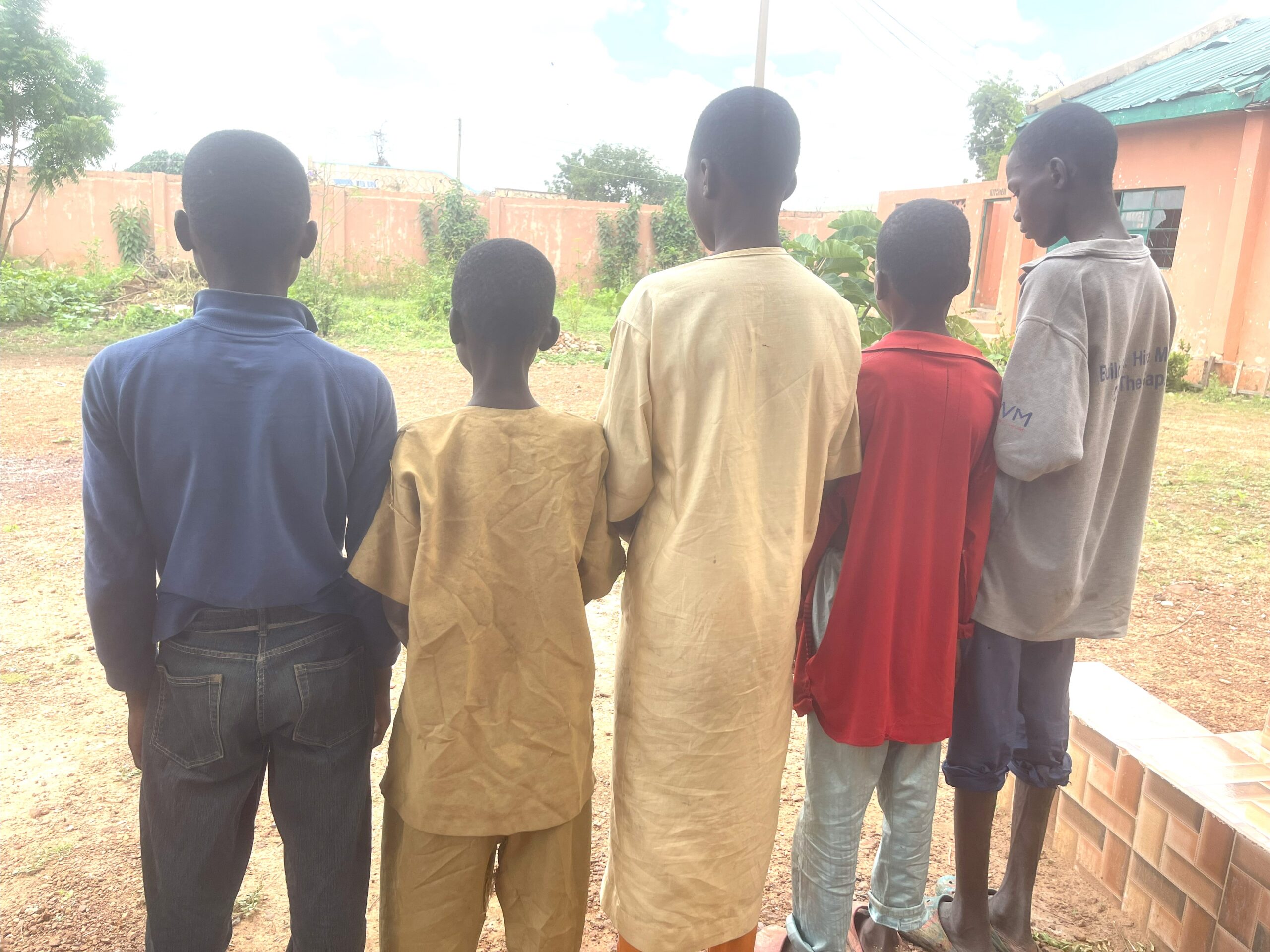
The illegal detention of children in remand homes and other correctional centres is not limited to only Sokoto state in Nigeria.
According to data from the Nigerian Correctional Centre, 56,973 people, including minors, are still awaiting trial as of October 2024, out of 84,337 detainees across the country’s 244 correctional facilities.
This means that seven of every ten inmates in Nigeria are being detained without proper charges and convictions by the court.
Marvellous Monday, a criminal justice lawyer with Citizens Gavel Foundation for Social Justice, described the detention of minors as a disrespect to the principles of the rule of law in the country.
“The causes of these things are abuse of power, ignoring the rule of law, and low oversight functions,” he said. “The Executive should shun abuse of power. Respect the rule of law and allow fair hearing before imprisoning children.”
The Sokoto State Child Rights Protection Law 2021 and the Child’s Rights Act 2003 are crucial laws aimed at safeguarding the well-being of children in the state.
Unfortunately, courts responsible for upholding these laws have disregarded some provisions, particularly in children’s criminal trials.
Section 213 of the Nigeria Child’s Rights Act and Section 160 of the Sokoto State Child Protection Law forbid the court from using terms like “conviction” and “sentence” while referring to children in criminal trials.
However, our findings show that courts like the Upper Sharia Court and the Chief Magistrate Court in Sokoto arbitrarily used these words while giving their judgements anytime they sit in a special capacity as juvenile criminal courts.
“Convicted to one-year imprisonment or a fine of N30,000,” a warrant of commitment to prison issued by a presiding judge of the Upper Sharia Court against one of the children in July stated.
The scenario is the same in Sokoto Chief Magistrate Court. The judge proceeded to write his judgement in a case between one of the minors, Suleiman Usman, and the Nigeria Security and Civil Defence Corps in May on a Warrant of Commitment to Prison, even though the legal document contains “words” whose use is prohibited in the state’s juvenile criminal justice systems.
A child rights advocate, Usman Ismail, said non-compliance with the laws protecting children’s welfare by the court is an eyesore to the Nigerian judicial system. He, therefore, blamed the situation on the unavailability of a special court created to entertain children’s matters in the country.
He said: “The juvenile justice system in Nigeria needs special courts as we have for election disputes. The practice of allowing conventional courts to occasionally hear children’s criminal cases is the cause of the unnecessary prolonging of their prosecutions. This is because the same courts complaining about excessive workloads are still expected to produce exceptional cases of this sort; undoubtedly, things will not be properly put in place.”
“Beyond enactment of laws, Nigerian government at all levels should show seriousness towards protecting children’s welfare and rights because they are the future builders of this country,” Usman advocated.
GOVERNMENT: WE’LL INVESTIGATE
The Sokoto State Ministry of Social and Humanitarian Affairs said it doesn’t that some of the inmates in Sokoto Remand House have spent years and several months without any convictions or proper arraignment.
“I don’t know much about the trials of the inmates. So I am not aware of your finding,” Ummu Abubakar, the ministry’s spokesperson, said as she referred this reporter to Yusuf Sani.
The director said what he knew was that some of the inmates were detained at the facility for a temporary time. He said he did not know some of them had spent up to a year without court judgement pronouncing them guilty of the alleged crime.
“We are hearing this for the first time that there are some of the children inside the remand house for years without conviction. We will investigate,” Yusuf Sani promised.
He added that his office was about to secure the approval of Aliyu Ahmad, the state governor, for the comprehensive rehabilitation of the juvenile prison to enhance the welfare of the inmates.
This story was produced with support from the Tiger Eye Foundation under the On Nigeria programme, funded by the MacArthur Foundation.
Add a comment


